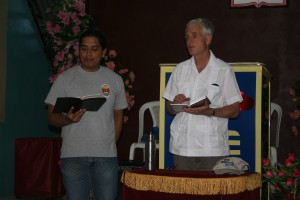 Once again, I am a bit late because of the Special 4th of July post. This is Lesson Three of the training manual Kathy and I are writing. We would very much enjoy any comments for improvements and corrections. We will be teaching this training program for 26 weeks this next year. Please help us by subscribing to this blog, reading each entry, and getting your friends to do so as well. All Blogs deal with the subject of how to live wisely a life of love for others.
Once again, I am a bit late because of the Special 4th of July post. This is Lesson Three of the training manual Kathy and I are writing. We would very much enjoy any comments for improvements and corrections. We will be teaching this training program for 26 weeks this next year. Please help us by subscribing to this blog, reading each entry, and getting your friends to do so as well. All Blogs deal with the subject of how to live wisely a life of love for others.
Copyright 2015, Chris and Kathy Scruggs, All Rights Reserved
Jesus came bearing witness to his relationship with the Father. Jesus’ disciples went into the world bearing witness to their experience of the crucified and risen Christ. The four Gospels are essentially remembrances of the story of the disciples personal relationship with Jesus. One reason we must read our Bibles, and particularly the Gospels, is that we need to remember and be able to tell the stories of Jesus. One reason that Disciplers are asked to memorize Bible stories is so that we can tell them to others. However, there is more to disciple making than telling stories from the Bible. We must be able to tell our own story of what God has meant to us.
The Apostle Paul was able to tell his story to people in order to bring them to Christ. His testimony is recorded in Acts and again in Galatians. In Acts, Paul tells his story at length to his fellow Jews. Here is the story as Paul tells it:
I am a Jew, born in Tarsus of Cilicia, but brought up in this city. I studied under Gamaliel and was thoroughly trained in the law of our ancestors. I was just as zealous for God as any of you are today. I persecuted the followers of this Way to their death, arresting both men and women and throwing them into prison, as the high priest and all the Council can themselves testify. I even obtained letters from them to their associates in Damascus, and went there to bring these people as prisoners to Jerusalem to be punished.

About noon as I came near Damascus, suddenly a bright light from heaven flashed around me. I fell to the ground and heard a voice say to me, “Saul! Saul! Why do you persecute me?” “Who are you, Lord?” I asked. “I am Jesus of Nazareth, whom you are persecuting,” he replied. My companions saw the light, but they did not understand the voice of him who was speaking to me. “What shall I do, Lord?” I asked. “Get up,” the Lord said, “and go into Damascus. There you will be told all that you have been assigned to do.” My companions led me by the hand into Damascus, because the brilliance of the light had blinded me. A man named Ananias came to see me. He was a devout observer of the law and highly respected by all the Jews living there. He stood beside me and said, “Brother Saul, receive your sight!” And at that very moment I was able to see him. Then he said: “The God of our ancestors has chosen you to know his will and to see the Righteous One and to hear words from his mouth. You will be his witness to all people of what you have seen and heard. And now what are you waiting for? Get up, be baptized and wash your sins away, calling on his name.” When I returned to Jerusalem and was praying at the temple, I fell into a trance and saw the Lord speaking to me. “Quick!” he said. “Leave Jerusalem immediately, because the people here will not accept your testimony about me.” “Lord,” I replied, “these people know that I went from one synagogue to another to imprison and beat those who believe in you. And when the blood of your martyr Stephen was shed, I stood there giving my approval and guarding the clothes of those who were killing him.” Then the Lord said to me, “Go; I will send you far away to the Gentiles” (Acts 22:1-21).
This famous testimony of Paul’s has three features that any good testimony has:
- It tells us what kind of a person Paul was before he became a Christian.
- It tells us how Paul became a Christian.
- It tells us what happened as a result of Paul becoming a Christian.
Before Paul became a Christian, Paul was a persecutor of Christians. He hated Christ and the Christian faith. He met Christ on the Road to Damascus on his way to persecute the Christians in that city. As a result of his conversion, Paul became a missionary to the Gentiles. All good testimonies have these three characteristics:
- Who I was before I came to Christ
- How I came to Christ
- What a difference it has made in my life.
 Take a moment and write out your testimony in these three categories:
Take a moment and write out your testimony in these three categories:
- Who I was before I came to Christ.
- How I came to Christ
- What a difference it has made in my life.
Dramatic and Nurtured Testimonies
Some Christians are hesitant to share their story with others because they feel it is not good enough, powerful enough, dramatic enough, or whatever. This is a big mistake. In our marriage, Chris has a dramatic testimony of how God came into his life. Kathy, on the other hand, has been a Christian almost all of her life. It is very important, therefore to remember that there are as many different testimonies as there are persons and there is more than one type of testimony.
People sometimes talk about the difference between dramatic conversions and nurtured conversions. A dramatic conversion usually occurs when someone has been far from God and is brought close to God in a single dramatic event or series of events. A nurtured conversion usually involves a parent, grandparent, or some other significant person who gradually nurtured the believer as a Christian. Once again, In Chris’ case, he was far from God, not really looking for God, when he suffered a series of failures and losses. At an important moment, a young co-worker reached out and invited him to a Bible study. Over several months the members of this Bible study nurtured him until he came to believe in Christ in a dramatic moment of commitment. Kathy grew up in a Christian family, was nurtured as a Christian by her parents, accepted Christ at an early age. She can, however, remember a time at a Christian camp when she drew near to God.
Think about your Christian walk. Then answer the following questions:
- What elements of nurture do you see?
- What elements of dramatic commitment do you see?
- How can you put these two elements together?
God’s Continuing Work in Your Life
People love to hear the story of who someone came to Christ. These stories are very important. However, our conversion story is not our only testimony. Since the time we came to believe in God and came close to Christ, other things have happened to us. Everyone has faced times of challenge, times of doubt, times of social pressure and the like. One of the most powerful testimonies any Christian can give to another person is to tell a story of a struggle in your life that is similar to a struggle they are having in their life. Once again, people like to hear stories of what God has been doing in the life of people they know are Christians. Once again, these stories do not have to be dramatic. In fact, sometimes they are more powerful if they are not dramatic.
For example, suppose that you were let go from a job and it took a long time to find a new one. Suppose you prayed, reached out to other Christians, and went to a Christian ministry that helps people find new jobs. Then, after several months of looking, you found a new job! That testimony would mean a lot to a person who was just laid off. Suppose you have had a struggle in your marriage or in parenting where you prayed and sensed God’s presence in solving the problem. That testimony would be powerful to someone who is struggling in his or her marriage or with a child.
We might call these kind of testimonies “Continuing Testimonies.” God continues to work in our lives day by day after we are Christians forming us into the people he wants us to be. This forming process, both pleasant and unpleasant is part of our testimony. It is also an important witness to what God can do in the life of ordinary people like us.
Think about times in your Christian walk when you felt God at work. Jot down some notes below about how you might describe it to another person:
Putting It All Together
We ask every person to prepare a three or minute testimony. If you wrote it out, that would be about one typed page, double-spaced in length. Your testimony needs to be unique to you. It needs to be your story. Of course, it needs to be factually correct. It also needs to be constructed so as to have all the elements of a good testimony:
- Who I was before I came to Christ
- How I came to Christ
- What a difference it has made in my life.
If it is a vignette from your past, some moment when God acted in your life in a special way, then the three elements might look like this:
- The problem I faced in my Christian walk.
- How God entered my life in my circumstances
- What a difference it has made in my life.
Take time now to write out your testimony.

Well done.
In reading the lesson, I noticed that the first sentence in the, “God’s Continuing Work in Your Life”, section, that the word “who” in that sentence should be changed to “how”, or the sentence reworded. And under the ” putting it all together section there seems to be an omitted word “four” As to a testimony, I have been a Christian for as long as I can remember, but I do have a testimony or two.